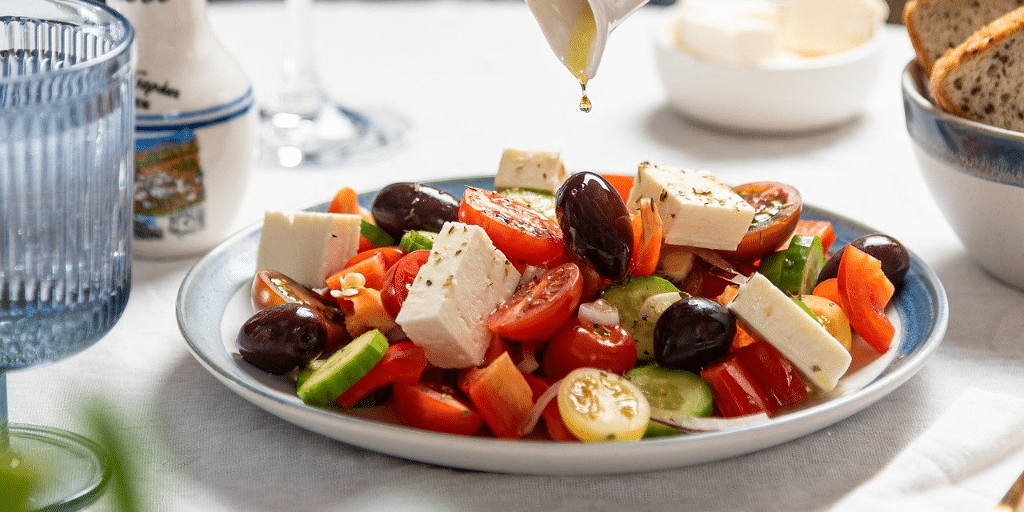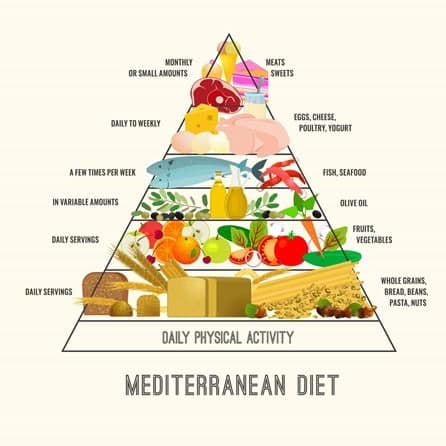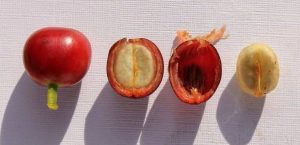Food and mood, how does diet impact our mental health?

Depression and anxiety are the most common mental health conditions worldwide, and a major contributor to the global burden of disease.
Throughout this blog we will explore how mood and food are related, and what diets might help improve our mental health.
Anxiety is a state of fear or tension without an obvious trigger that can continue to increase and not go away. Apart from the psychological stress of anxiety there can also be physical signs from the body causing fatigue, trembling, gastrointestinal upset and shortness of breath. Anxiety is the most common health condition in Australia with one in three women and one in five men experiencing anxiety in their lifetime (Owen L, 2017) (National Survey of Mental Health and Wellbeing: Summary of Results, n.d.).
Depression affects approximately 280 million people worldwide. During a depressive episode, a person can have decreased mood, feel irritable and empty, experience a loss of interest in activities they usually enjoy, have poor concentration, low self-esteem and suicidal thoughts (WHO, 2021). Depression often affects every aspect of life: school, work, family and social life.
Diet is now a recognised modifiable component in the prevention and treatment of mental illness.
Australian and New Zealand College of Psychiatrists’ clinical practice guidelines for mood disorders now includes recommendations for lifestyle including diet in the treatment of mood disorders describing this step as “essentially non-negotiable” (MAHONEY, n.d.).
- Healthy eating patterns, such as the Mediterranean diet, are associated with better mental health than “unhealthy” eating patterns, such as the Western diet (Firth J, 2020).
- There is no one specific diet to improve your mental health but generally diets that support good mental health include wholefoods, wholegrains, fruits, vegetables and legumes, and healthy fats from fish, nuts, seeds and olives (MAHONEY, n.d.).
- The effects of certain foods or dietary patterns on blood glucose, immune activation and the gut microbiome may play a role in the relationship between food and mood (Firth J, 2020)
- Consuming considerable amounts of fruits, vegetables, nuts, and legumes (Głąbska, Guzek, Groele, & Gutkowska, 2019).
- Reduced risk of depression is associated with moderate consumption of poultry, eggs, and dairy products; and occasional consumption of red meat (Firth J, 2020)

Fruit and vegetables
Research suggests a role for a balanced diet in the prevention and treatment of mental health disorders. There has been a closer look at fruits and vegetables due to their high content of nutrients. A systematic review indicated that a high intake of fruits and vegetables including subgroups including citrus, berries, and green leafy vegetables; may encourage self-efficacy and optimism and reduced levels of psychological distress, as well as protection against depressive symptoms. The studies noted that various methodologies and different populations were used so results are not always comparable, therefore they gave a general recommendation that 5 serves of fruit and vegetables per day may benefit mental health (Głąbska, Guzek, Groele, & Gutkowska, 2019).
Fruit and vegetables contain minerals (magnesium, zinc, phosphorous and folic acid), vitamins (Vit A, C), antioxidants (Lycopene, zeaxanthin) and fibre. They help keep us healthy and protect against some diseases (Channel, 2011).
Most Australians do not eat enough fruit or vegetables, the Australian guide to healthy eating recommends 2 servings of fruit and 5 serves of vegetables every day https://www.eatforhealth.gov.au/guidelines/australian-guide-healthy-eating.
The Mediterranean diet (MD) is regarded as one of the healthiest food models worldwide
The Mediterranean diet is in lots of research not only for benefits in physical health but also mental health. Two current clinical trials on MD and mental health showed positive findings on the improvement of depressive symptoms (Ventriglio A, 2020).
If we look at the MD diet from a nutritional point of view it is full of fibre and antioxidants from grain food, fruit and vegetables, full of vitamins, minerals, Omegas from fish, olive oil, legumes. High in probiotics from fermented dairy and low in saturated fats and animal protein. Therefore, the benefits on physical and mental health following the MD diet can be related to antioxidants, fibres, monounsaturated and omega-3 fatty acids, phytosterols and probiotics (Ventriglio A, 2020).
There are a few MD Pyramids recommending
- Olive oil, grains, vegetables, fish and fruit every day
- Eggs and poultry weekly
- Moderate consumption of fermented dairy products
- A low intake of red meat
- Moderate consumption of wine during the main courses

Supplementing the MD with fish oil may provide additional benefit for mental health
Parletta et al tested the effects of MD supplemented with fish oil on mental health among 152 people self-reporting depressive symptoms (30.9% males). The intervention group received MD-cooking workshops for 3 months and fish oil supplements for 6 months. The MD group also reported a greater reduction in depressive symptoms (p= 0.03) and improved mental health QoL (Quality of Life) scores (p= 0.04) at 3 months. With improved diet and mental health improvements were confirmed at 6 months (Parletta N, 2017).
Inflammation and mental health
Inflammation is an activation of the immune system, which can arise as a result of many factors, which can be caused by infection, injury, smoking, poor diet, stress, and lack of exercise (MAHONEY, n.d.). Inflammatory effects of a diet high in saturated fats and excess calories may have negative effects on brain health (Firth J, 2020) and long-term inflammation can lead to depression (MAHONEY, n.d.). Anti-inflammatory diets such as the Mediterranean diet, diets including; omega-3, fruits, vegetables and wholegrains, can also help reduce inflammation including . Numerous mental health conditions have been linked to increased inflammation, and observational studies have shown that people with depression score significantly higher on measures of ’dietary inflammation. However further research is still needed (Firth J, 2020).

Summary
There is still a lot of research to be done on the relationship between food and mood, however, there are clear links are starting to show for improvements in mental health when;
- Following a Mediterranean-style diet
- Eating a diet rich in whole grains, vegetables, fruit, olive oil, fermented dairy
- Reducing intake of saturated fats and red meat
There is good evidence that eating this way improves our physiological health and may have benefits for our mental wellbeing.
For strategies and support to overcome barriers to eating healthy, reach out to our friendly administration team who can link you in with one of our dietitians.
Author: Scarlett Gray, Dietitian
References
- Channel, B. H. (2011). Fruit and vegetables. Retrieved from https://www.betterhealth.vic.gov.au/health/healthyliving/fruit-and-vegetables
- Firth J, G. J. (2020). Food and mood: how do diet and nutrition affect mental wellbeing? BMJ. Retrieved from https://www.bmj.com/content/369/bmj.m2382
- MAHONEY, S. (n.d.). Looking through the lens at how food can improve our mood. Retrieved from Food and Mood Centre: https://foodandmoodcentre.com.au/2021/04/looking-through-the-lens-at-how-food-can-improve-our-mood/
- Organization, W. H. (2021). Depression. Retrieved from https://www.who.int/news-room/fact-sheets/detail/depression
- Owen L, C. B. (2017). The role of diet and nutrition on mental health and wellbeing. Proc Nutr Soc, 425-426. Retrieved from https://pubmed.ncbi.nlm.nih.gov/28707609/
- Parletta N, Z. D. (2017). A Mediterranean-style dietary intervention supplemented with fish oil improves diet quality and mental health in people with depression: A randomized controlled trial. Nutr Neurosci. Retrieved from https://pubmed.ncbi.nlm.nih.gov/29215971/
- Ventriglio A, S. F. (2020). Mediterranean Diet and its Benefits on Health and Mental Healt. Clin Pract Epidemiol Ment Health. Retrieved from https://www.ncbi.nlm.nih.gov/pmc/articles/PMC7536728/






